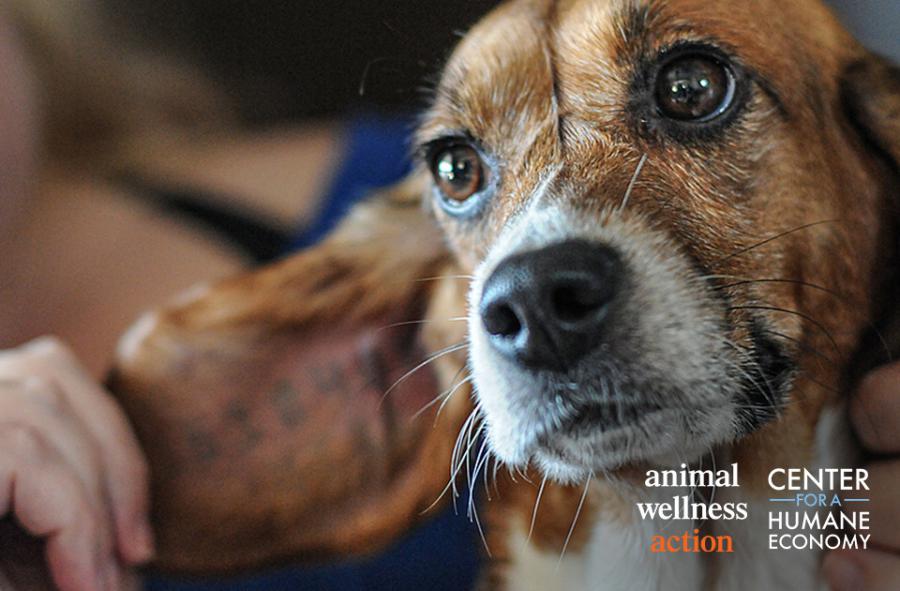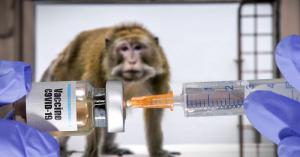
After FDA’s Announcement to Phase Out Animal Testing, NIH Promises Similar Plan to Pursue Human-Relevant Research
With interlocking plans, the government’s major research agencies are leaving animal testing behind and pursuing 21st-century strategies
WASHINGTON, D.C. , DC, UNITED STATES, April 30, 2025 /EINPresswire.com/ -- Today, the Center for a Humane Economy (CHE) and Animal Wellness Action (AWA) applauded the National Institutes of Health (NIH) on its plan to favor human-based research technologies in place of animal use in intramural research and in NIH-funded extramural studies and basic science. This game-changing announcement is aligned with a similar announcement made earlier this month by the FDA Commissioner about drug testing – reforms set in motion by the work of CHE and AWA to eliminate an animal-testing mandate for new drug development that had been in place since the enactment of the Food, Drug and Cosmetics Act of 1938.
“For decades, our biomedical research system has relied heavily on animal models. With this initiative, NIH is ushering in a new era of innovation,” said NIH Director Dr. Jay Bhattacharya in the NIH Press Release. “By integrating advances in data science and technology with our growing understanding of human biology, we can fundamentally reimagine the way research is conducted—from clinical development to real-world application. This human-based approach will accelerate innovation, improve healthcare outcomes, and deliver life-changing treatments. It marks a critical leap forward for science, public trust, and patient care.”
The core of the new operational plan involves establishing the Office of Research Innovation, Validation, and Application (ORIVA) within the Office of the Director of the NIH. The new office will coordinate NIH-wide efforts to develop, validate, and scale the use of non-animal approaches across the agency’s biomedical research portfolio and serve as a hub for interagency coordination and regulatory translation for public health protection.”
“With April announcements from FDA, EPA, and NIH to wind down animal testing, the Trump Administration is promising to shed the inhumane, inefficient, and archaic model of animal testing and to substitute a new era characterized by human-relevant science and personalized medicine,” said Wayne Pacelle, president of Animal Wellness Action and the Center for a Humane Economy. “These landmark declarations by research-based institutions constitute a bloodless revolution in public health and animal welfare in our nation.” The NIH is the world’s largest funder of scientific research, spending 47% of its $45+ billion annual budget on animal research and testing.
Director Bhattacharya’s historic initiative was preceded by FDA Commissioner Marty Makary’s landmark “Roadmap to Reducing Animal Testing in Preclinical Safety Studies at FDA” and by EPA Administrator Lee Zeldin’s reaffirmation of his agency’s plan to phase out animal testing for chemical safety screening.
Animal Wellness Action and the Center for a Humane Economy, whose work in Congress set the stage for the FDA announcement and the correlated initiative from NIH, heaped special praise on Health and Human Services Secretary Robert F. Kennedy, Jr. for supporting these bold declarations and for working with President Trump to select reform-minded science leaders in Dr. Makary and Dr. Bhattacharya.
“The long obsession with animal-centric research at the NIH sent investigators on wild-goose chases and normalized and even glamorized the use of animals in scientific experimentation,” said Dr. Zaher Nahle, chief scientific advisor for the Center for a Humane Economy. “This misguided ‘in vivo’ doctrine has demonstrably contributed to the 'reproducibility crisis' and the perceived diminished credibility of published studies.”
“Dr. Bhattacharya’s ideas to create the Office of Research Innovation, Validation, and Application puts science on a better, faster, more reliable track, and it is a particularly inspired idea,” added Dr. Nahle.
“A health and research system long grounded on animal testing and research holds back cures, efficient use of resources, and denies patients the palliatives and treatments needed,” said Tamara Drake, director of research and regulatory policy for the Center for a Humane Economy. “The 90% failure rate for animal testing in predicting human reactions to drugs has been tolerated too long. Dr. Bhattacharya’s announcement to establish OVIRA puts the NIH on the road to relying on 21st-century human-relevant science, which is a breathtaking and positive change for public health in the United States.”
The Center for a Humane Economy and Animal Wellness Action launched the FDA Modernization Act in 2021 to eliminate the animal testing mandate for new drugs — by far the biggest category of animal testing – and worked with Republicans and Democrats to pass that legislation just 20 months later as the FDA Modernization Act 2.0. The groups continue to push for the implementation of the new law through the FDA Modernization Act 3.0, S. 355, H.R. 2821, led by Senators Cory Booker, D-N.J., and Eric Schmitt, R-Mo. and Reps. Buddy Carter, R-Ga., and Nanette Barragan, D-Calif.
Wayne Pacelle
Animal Wellness Action
+1 443-865-3600
email us here
Visit us on social media:
Instagram
Facebook
YouTube
Distribution channels: Culture, Society & Lifestyle, Environment, Healthcare & Pharmaceuticals Industry, Science, U.S. Politics
Legal Disclaimer:
EIN Presswire provides this news content "as is" without warranty of any kind. We do not accept any responsibility or liability for the accuracy, content, images, videos, licenses, completeness, legality, or reliability of the information contained in this article. If you have any complaints or copyright issues related to this article, kindly contact the author above.
Submit your press release

